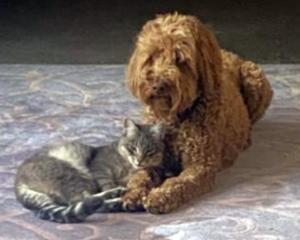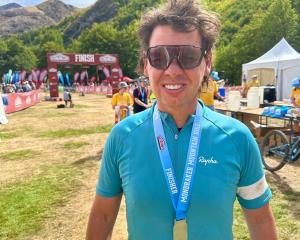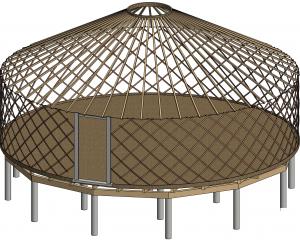Mr Wardell's appointment as chef de mission for the 2018 PyeongChang Winter Olympics in South Korea was confirmed 10 days ago.
Mr Wardell likened his role to being ''the father of a very large family''.
Having worked for five years with athletes ranging in age from 14 to 30, Mr Wardell said like any father he had had to deal with ''hijinks'' and had needed to guide team members ''in the right direction''.
''But they don't always do it,'' he laughed.
''It's sort of the way you ask them or suggest they do something [that] has much more bearing on the outcome than what you actually say.''
South Korea is a country Mr Wardell has not been to before but in a month or two, the mountainous region east of Seoul will become his second home as he establishes connections in readiness for the Games.
He expects to visit PyeongChang three or four times to ''make friends'' with some of the most important people there, such as ''the transport guys and those giving out the beds and the rooms and the best space in the village''.
''They're the ones you really want to be good friends with.''
Part of his job was charming those people to think the Kiwis were ''the nicest''.
''You don't do what the Aussies do and bang the table and say: 'We demand we go there'.
''It's much better for us to say: 'Let's go and have a couple of little, quiet vodkas and see if we can't sort out the best space'.''
Mr Wardell described himself as the ''accidental chef de mission'' who fell into the role when asked at the last minute to head the 2010 Vancouver Winter Olympics squad.
''I was a bit of [a] late recruit into the system and loved doing it.''
Six events later, he was the first person appointed to the New Zealand team for PyeongChang in 2018 - the athletes themselves still with three years to prove they are good enough.
Mr Wardell has watched the progress of several young athletes from one Games to the next.
''I think one of the really pleasing things is actually seeing some of the people who were at the Youth Games, coming through and medalling at world champs and Commonwealth Games.
''That's really special.''
He expects to lead a team of about 16 to 18 athletes, plus officials, to PyeongChang - small by comparison with the 360 athletes and officials who attended this year's Commonwealth Games in Glasgow.
''In some ways it's easier with a small team but in a small team there's nowhere to hide.''
To illustrate the point, Mr Wardell said as each team member arrived at the Sochi Winter Olympic village they were greeted by a haka performed by the New Zealanders already there.
Being the first to arrive, the tall, older, Pakeha, chef de mission was required to play a prominent roles in the haka party.
''There are only four of you to do a haka for the first few people ... that's always a bit traumatic.''
Other jobs he delegated wherever possible, leaving him to deal with the unexpected and ''niggly little'' issues.
''I always joke I just go to the cocktail parties but you actually don't go to any cocktail parties. They're a bit irrelevant and I just don't have time for that.
''I've got to make sure the athletes get everything they need, and my team is paramount.
''It's the longest period of time your liver gets a complete rest.
''Some, not all, chefs take that attitude, but that's very much mine.''
Mr Wardell said there were always ''hangers on'' at big events.
''There is a whole entourage of people who have got their noses in the trough.
''I tend to leave them to it because I think it's quite easy to get dragged into that and then you forget your focus of what you are supposed to be doing.
''You pay lip service to it and if you are really required to, you go to things.
''But most of the time you can avoid it.''
Mr Wardell said big sponsors flew planeloads of people to events but he had a strict policy of not allowing sponsors into the New Zealand part of the village.
''That's sacrosanct.''
Mr Wardell said the New Zealand team had a good relationship with others from the United States, Norway and Austria because their teams trained in New Zealand.
''Everybody wants to be a Kiwi; wants our jackets; wants our gear because we are seen as being a really small, cool place to be.''
He expected New Zealand's connections to be broadened next year when the South Korean team took part in Winter Games New Zealand, as they prepared for their own event in 2018.
Asked about the attributes required of a chef de mission, Mr Wardell said it was important to have an ability to plan, to understand how high-performance sports worked, to know how to ''react slowly'' rather than impulsively and, he joked, it also helped to have the ''ability to stay awake 24-7'' during events.
Track record
New Zealand chef de mission Peter Wardell
• 2010 Vancouver Winter Olympics, Canada.
• 2011 Isle of Man Commonwealth Youth Games.
• 2012 Innsbruck Winter Youth Olympic Games, Austria.
• 2013 Kazan World University Games, Russia.
• 2014 Sochi Winter Olympic Games, Russia.
• 2018 PyeongChang Winter Olympic Games, South Korea.











